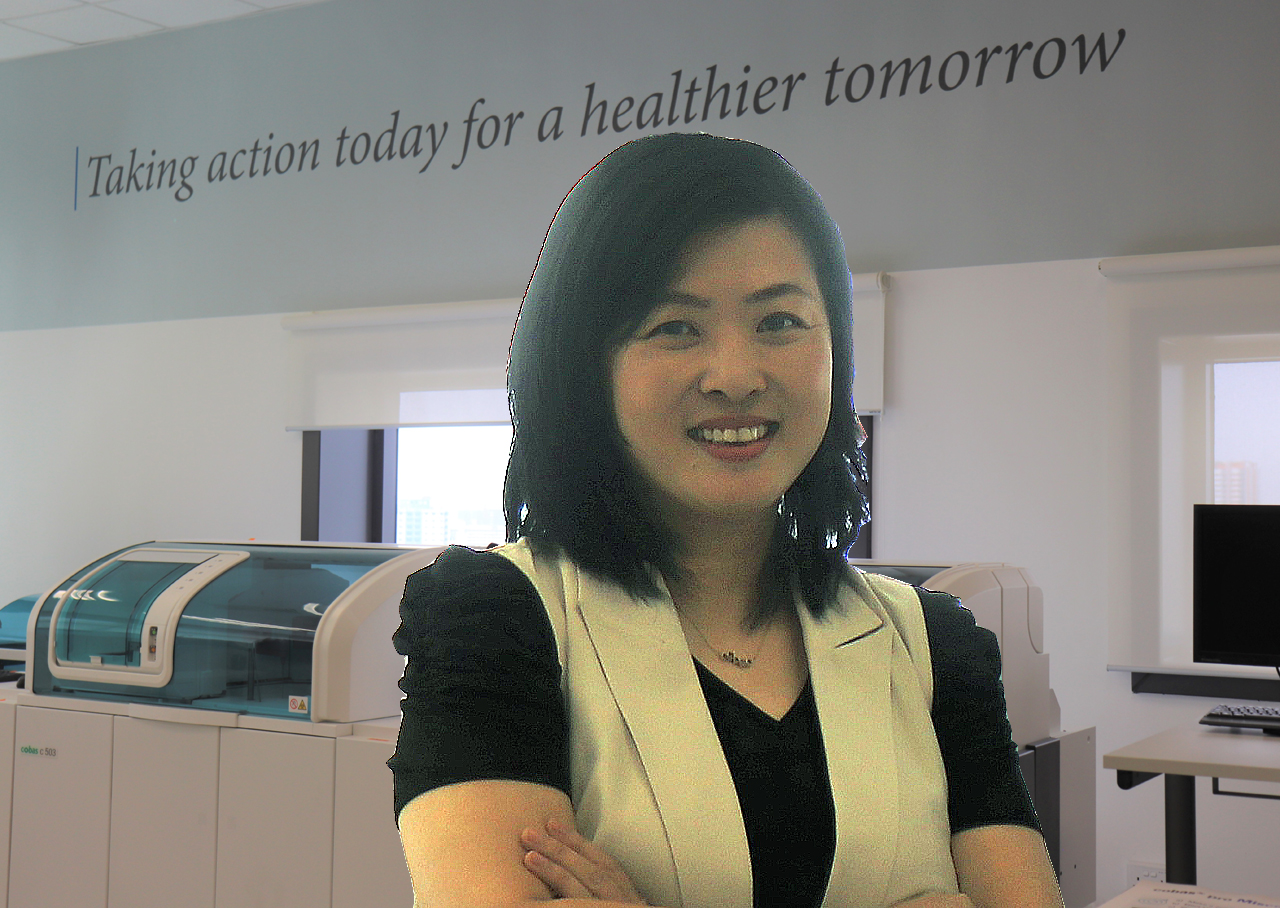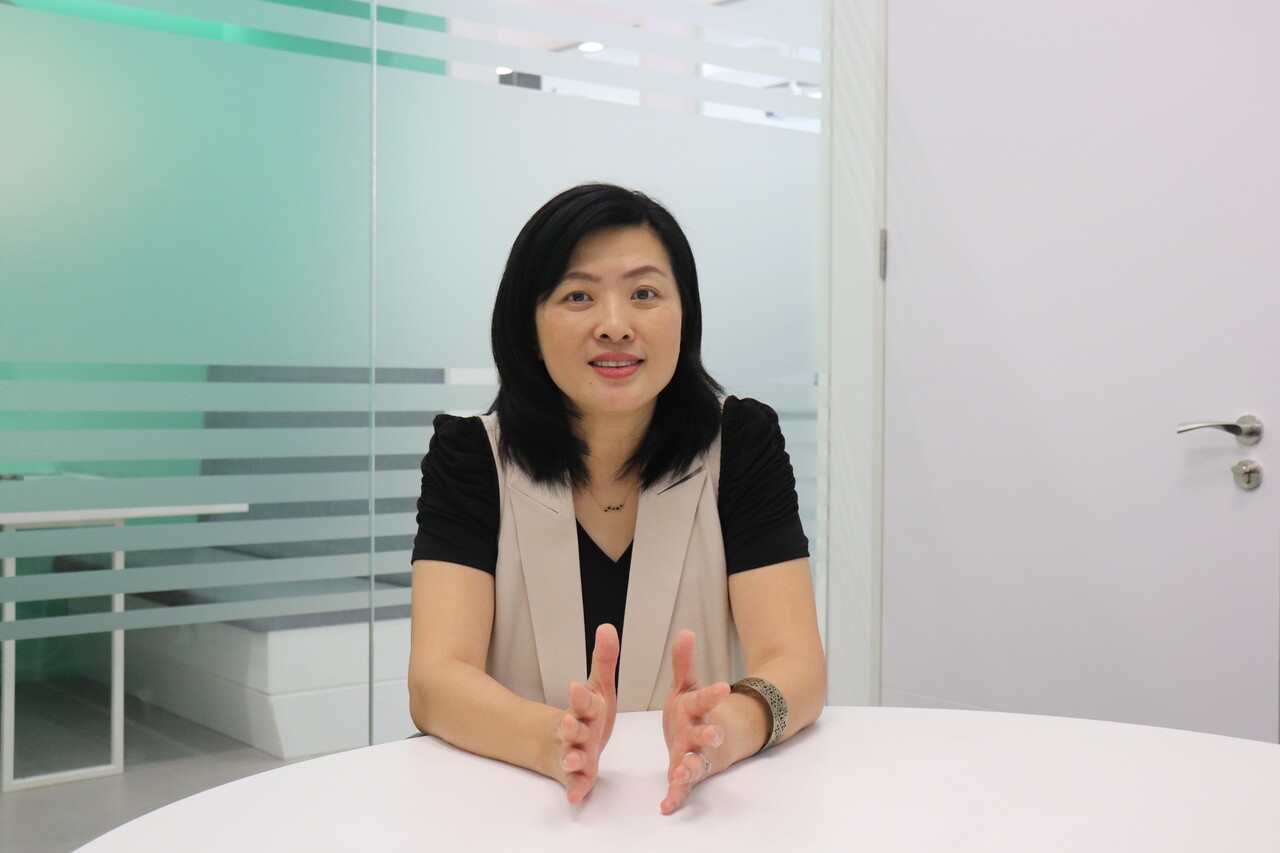SINGAPORE -- The medical device industry is undergoing a remarkable transformation. As technology continues to evolve at an unprecedented pace, it's not just the medical devices that are getting smarter but also how they are conceptualized, designed, and brought to market.
One such transformative approach that's carving out a new future for this sector is open innovation.
Open innovation, a strategy of leveraging various stakeholders' collective wisdom and expertise beyond organizational boundaries, is an essential tool in advancing the medical device industry.
Whether it's a multinational corporation or a fledgling startup, adopting open innovation principles accelerates the development of groundbreaking medical technologies while creating a fertile ground for collaboration and creativity.
One company that fully utilizes open innovation to its advantage is Roche Diagnostics.

Wendy Bao, Chapter Lead for Strategy and Innovation at Roche Diagnostics Asia Pacific (APAC), elaborated on how the company makes the most of open innovation to change the medical device landscape in a recent interview with Korea Biomedical Review.
Bao is part of a team tasked with evolving Roche Diagnostic's strategy to keep pace with external environments, market needs, and demands. But one crucial aspect of this evolution, Wendy notes, is the realization that no single entity can solve very challenging innovation transformation changes by themselves.
This understanding has led to a shift in the company's approach towards embracing open innovation, a move Bao considers central to Roche's future success.

Fostering innovation through Startup Creasphere
One initiative that stands out in Roche's innovation journey is Startup Creasphere.
The brainchild of Roche and Plug and Play, Startup Creasphere is an innovation platform established to challenge clinical practices, improve data analytics, and enhance the patient journey across the continuum of care.
The program seeks to connect various industry players and foster collaboration, which involves defining the right scope and problem statements for co-creation.
Bao noted that the solutions produced through this program have the potential to augment Roche's overall offerings and better serve customers and patients alike.
Roche Diagnostic implemented the Startup Creasphere platform in the EU and the U.S. a few years ago. However, the company only recently implemented the program in the APAC region.
"Startup Creasphere provides a unique opportunity for startups to collaborate with Roche Diagnostics," Bao said. "Successful collaborations that meet Roche's requirements progress to more advanced stages of cooperation, empowering startups with global exposure."
There have been several notable success stories from the Startup Creasphere program in the EU and U.S., including collaborations with Cobas Pulse application (SteadySense, Testcard, Smart4Diagnostics, Precordior), Lark (cardiac disease management), FibriCheck (atrial fibrillation), and SagivTech (pathology).
"These successful partnerships demonstrate the program's potential to cultivate innovation and generate impactful solutions for the healthcare industry, which is why we brought the program here to APAC," she said.
Bao identified Roche's primary areas of interest as oncology, cardio-metabolic, and infectious diseases.
However, she noted that her division is also seeing a growing interest in decentralized care solutions that enhance remote patient monitoring and overall patient experience.
"Decentralized care, which are solutions that may not necessarily be a diagnostic tool but can enable remote patient monitoring and improve the overall patient journey," she said. "We are looking into how we can bring such decentralized care solution into the company's platform to provide a more comprehensive solution."
Accelerating collaboration with Korea
Bao further highlighted Roche Diagnostics' commitment to innovation in the APAC region with the recent MOU with the Korea Health Industry Development Institute (KHIDI).
"Roche acknowledges Korea's importance in the open innovation space thanks to its advanced technology and bustling innovation activities," Bao said. "Through the collaboration with KHIDI, we're looking into how we can tap into the Korean ecosystem around the medical device area."
Bao stressed that she hopes this collaboration will identify promising startup opportunities and select companies that will prosper through the Startup Creasphere program, marking progress on a global scale.
"KHIDI is receiving requests for proposal for the program in collaboration with inputs from Roche Diagnostic, where we will look into the appropriateness of research plan, researcher capacity, need for international collaboration, and impact of research results," she said.
APAC innovation grows faster
Revealing her experiences with startups from various countries, Bao notes that while the European and American arenas have traditionally been perceived as the front-runners in the startup space, the APAC region is catching up.
"Although it is in the maturing phase, the innovation environment in APAC still shows promise," she said. "The region has been making impressive strides, as evidenced by the sheer number of patents across various sectors coming out of this region, outpacing EU and other markets."
Another vital ingredient in this recipe of fostering innovation ecosystems has been the significant emphasis and support provided by various APAC governments to the startup community, she added.
Bao stressed that this support, prevalent across different countries, is a common thread knitting the global startup ecosystem.
"However, the uniqueness of the startup ecosystem in each region comes from its distinguishing characteristics," she said. "One such example can be found in Korea, where startups often exhibit a global vision right from their early stages."
She added that this global perspective significantly shapes their design development and commercial path, infusing them with a broader and more ambitious scope.
Looking ahead, Bao believes that Roche Diagnostics' contributions to healthcare will become even more significant through its open innovation efforts.
"The complexity and pace of healthcare transformation require a collaborative approach, and I see Roche Diagnostics as a key player in this journey," Bao said.
Related articles
- APAC CVD Alliance to steer the fight against cardiovascular diseases in the region
- Driving innovation and patient-centricity: A deep dive into AbbVie's vision for healthcare in Asia
- APAC's healthcare paradigm shifts towards tech-driven, sustainable patient-centric models: Philips report
- AItheNutrigene works on commercializing 1st paper-based Covid-19 test
- SCL participates in Roche Diagnostics' RED 2023 Symposium
- Roche Diagnostics CTO: Collaboration is key catalyst for healthcare innovation

